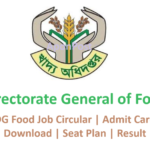The IELTS Reading test assesses your ability to understand and comprehend written English. It consists of three sections, each with a different reading passage. The passages are taken from various sources, such as books, magazines, journals, and newspapers. The test aims to evaluate your reading skills, including skimming, scanning, and understanding the main ideas and specific details.
Test Format:
- There are 40 questions in total (13-14 questions per section).
- The test duration is 60 minutes, and you should spend approximately 20 minutes on each section.
- The question types include multiple-choice, matching, sentence completion, summary completion, True/False/Not Given, Yes/No/Not Given, and short-answer questions.
Tips for IELTS Reading:
- Practice Regularly: Reading in English is crucial for improving your reading skills. Read a variety of materials, such as articles, essays, and academic texts.
- Skim the Text First: Before diving into the questions, quickly skim through the entire passage to get an idea of its main topic, structure, and organization.
- Read the Instructions Carefully: Pay close attention to the instructions for each question type. Understand what information you need to find in the text.
- Manage Your Time: Since each section has a time limit, practice managing your time during practice tests to ensure you have enough time for all passages.
- Underline Key Information: When reading the questions and passages, underline or highlight essential keywords and phrases. This will help you quickly locate relevant information later.
- Pay Attention to Question Keywords: The wording of the questions often mirrors the wording in the passage. Be on the lookout for synonyms and paraphrased phrases.
- Practice Skimming and Scanning: Skimming is reading quickly to get the main idea, while scanning is rapidly searching for specific information. Both skills are valuable during the test.
- Focus on True/False/Not Given and Yes/No/Not Given Questions: These questions can be tricky, as the answers may not be explicitly stated in the text. Pay close attention to the question requirements.
- Answer All Questions: There is no penalty for incorrect answers, so attempt all questions even if you are unsure. An educated guess might get you some points.
- Use Context for Vocabulary: If you encounter unfamiliar words, try to deduce their meanings from the context of the sentence or paragraph.
- Practice with Time Constraints: During your practice sessions, simulate the test conditions with time constraints to improve your reading speed.
- Review Your Answers: If time allows, review your answers before submitting the test. Check for any mistakes or overlooked questions.
Remember, regular practice and exposure to various reading materials will enhance your reading skills. Take advantage of sample tests and past papers to get familiar with the IELTS Reading test format and difficulty level. Good luck with your preparation! If you have any specific questions or need further assistance, feel free to ask.








